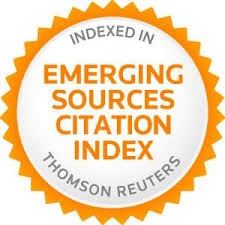Factores escolares asociados al desarrollo socio-afectivo en Iberoamérica
Resumen
Se presentan los resultados de una investigación internacional que pretende identificar los factores de escuela y de aula asociados al logro socio-afectivo de los estudiantes de Educación Primaria en Iberoamérica. Se realizó un estudio Multinivel con 4 niveles de análisis, se analizaron 5.603 alumnos de 248 aulas correspondientes a 98 escuelas de 9 países. Se trabajó con cuatro variables de producto socio-afectivo (Autoconcepto, Comportamiento académico, Convivencia social y Satisfacción con la escuela). Los resultados arrojaron una serie de factores de aula y escuela que explican el desarrollo socio-afectivo, coherentes con los hallados en la investigación sobre eficacia escolar con factores cognitivos.
Palabras clave
Referencias
Arancibia, V., Maltés, S., y Álvarez, M. (1990). Test de Autoconcepto Académico. Estandarización para escolares de 1° y 4° a-os de Ense-anza Básica. Santiago: PUC de Chile.
Arthaud-Day, M.L., Rode, J.C., Mooney, C.H., y Near, J.P. (2005). The subjective well-being construct: a test of its convergent, discriminate, and factorial validity. Social Indicators Research, 74, 445-476.
http://dx.doi.org/10.1007/s11205-004-8209-6
Blanco, B. (2008). Factores Escolares Asociados a los Aprendizajes en la Educación Primaria Mexicana: Un Análisis Multinivel. REICE. Revista Iberoamericana sobre Calidad, Eficacia y Cambio en Educación, 6(1), 58-84.
Cervini, R. (2002). Desigualdades Socioculturales en el Aprendizaje de Matemática y Lengua de la Educación Secundaria en Argentina: Un modelo de tres niveles. RELIEVE, 8(2). Consultado en http://www.uv.es/RELIEVE/v8n2/RELIEVEv8n2_1.htm
Cervini, R. (2004). Influencia de los factores institucionales sobre el logro en Matemática de los estudiantes en el último a-o de la educación Media de Argentina. Un modelo de tres niveles. REICE. Revista Iberoamericana sobre Calidad, Eficacia y Cambio en Educación, 2(1).
Cotton, K. (1995). Effective schooling practices: A research synthesis. 1995 updated. Portland, OR: Northwest Regional Educational Laboratory.
Cuttance, P. (1987). Modelling variation in the effectiveness of schooling. Edinburgh: Centre for Educational Sociology, University of Edinburgh.
Edmonds, R. (1979). Effective schools for the urban poor. Educational Leadership, 37(1), 15-24.
Engels, N., Aelterman, A., Schepens, A., y Van Petegem, K. (2004). Factors which influence the wellbeing of pupils in Flemish secondary schools. Educational Studies, 30, 127-143.
http://dx.doi.org/10.1080/0305569032000159787
Escudero, T. (1997). Enfoques modélicos y estrategias en la evaluación de centros educativos. RELIEVE, 3(1). Disponible en http://www.uv.es/RELIEVE/v3n1/RELIEVEv3n1_1.htm
Fuller, B. y Clarke, P. (1994). Raising school effects while ignoring the culture? Local conditions and the influence of classroom tools, rules and pedagogy. Review of Educational Research, 64(1), 119-157.
http://dx.doi.org/10.3102/00346543064001119
Goldstein, H. (1997). Methods in School Effectiveness Research. School Effectiveness and School Improvement, 8, 369-395.
http://dx.doi.org/10.1080/0924345970080401
Gray, J. (2006). La Eficacia Escolar y Otros Resultados de la Ense-anza Secundaria: una evaluación de tres décadas de investigación británica. REICE. Revista Iberoamericana sobre Calidad, Eficacia y Cambio en Educación, 4(1), 16-28.
Harber, C. y Davies, L. (1997). School management and effectiveness in developing countries: The postbureaucratic school. London: Cassell.
Hofman, R.H., Hofman, A.H., y Guldemond, H. (1999). Social and cognitive outcomes: A comparison of contexts of learning. School Effectiveness and School Improvement, 10(3), 354-366.
http://dx.doi.org/10.1076/sesi.10.3.352.3499
INEE (2007). Factores escolares y aprendizaje en México: El caso de la educación básica. México: INEE.
Knuver, J.W.M. y Brandsma, H.P. (1993). Cognitive and affective outcomes in school effectiveness research. School Effectiveness and School Improvement, 4(3), 189-204.
http://dx.doi.org/10.1080/0924345930040302
Konu, A.I. (2006). School well-being in Grades 4-12. Health Education Research, 21(5), 633-642.
http://dx.doi.org/10.1093/her/cyl032
Konu, A.I., Litonen, T.P., y Autio, V.J. (2002). Evaluation of well-being in schools: a multilevel analysis of general subjective well-being. School Effectiveness and School Improvement, 13, 187-200.
http://dx.doi.org/10.1076/sesi.13.2.187.3432
Konu A.I., Rimpelä, M.K., y Lintonen, T.P. (2002). Factors associated with schoolchildren's general subjective well-being. Health Education Research, 17, 155-65.
http://dx.doi.org/10.1093/her/17.2.155
Kristof, A.L. (1996). Person-organization fit: an integrative review of its conceptualizations, measurements, and implications. Personnel Psychology, 49, 1-49.
http://dx.doi.org/10.1111/j.1744-6570.1996.tb01790.x
Leonard, C., Bourke, S., y Schofield, N. (2004). Affecting the affective: Affective outcomes in the context of school effective ness, school improvement and quality schools. Issues In Educational Research, 14.
Levine, D.U. y Lezotte, L.W. (1990). Unusually effective schools: a review and analysis of research and practice. Madison: National Center for Effective Schools Research and Development.
Marjoribanks, K. (1980). School environment scale. Adelaide: Jai Press.
Marsh, H.W. (1988). Self Description- Questionnaire I. SDQ-I manual and research monograph. San Antonio, TX: The Psychological Corporation.
Marsh, H.W., Craven, R.G. y Debus, R.L. (1991). Self-concepts of young children aged 5 to 8: Their measurement and multidimensional structure. Journal of Educational Psychology, 83, 377-392.
http://dx.doi.org/10.1037/0022-0663.83.3.377
Mortimore, P., Sammons, P., Stoll, L., Lewis, D., y Ecob, R. (1988). School matters: The junior years. Somerset: Open Books.
Mu-oz-Repiso, M., Murillo, F.J., Barrio, R., Brioso, M.J., Hernández, M.L. y Pérez- Albo, M.J. (2000). Investigación sobre Mejora de la Eficacia Escolar: un estudio de casos. Madrid: CIDE.
Murillo, F.J. (Coord.) (2003). La investigación sobre Eficacia Escolar en Iberoamérica. Revisión internacional del estado del arte. Bogotá: Convenio Andrés Bello.
Murillo, F.J. (2005). La investigación sobre eficacia escolar. Barcelona: Octaedro.
Murillo, F.J. (2007). School Effectiveness Research in Latin America. En T. Townsend (Ed.), International Handbook of School Effectiveness and Improvement (pp. 75–92). New York: Springer.
Murillo, F.J. y Román, M. (2011). School infrastructure and resources do matter. Analysis of the incidence of school resources on the performance of Latin American students. School Effectiveness and School Improvement, 22(1), 29-50.
http://dx.doi.org/10.1080/09243453.2010.543538
Opdenakker, M.C. y Van Damme, J. (2000). Effects of schools, teaching staff and classes on achievement and well-being in secondary education: similarities and differences between school outcomes. School Effectiveness and School Improvement, 11, 165-196.
http://dx.doi.org/10.1076/0924-3453(200006)11:2;1-Q;FT165
Pascual, R., Villa, A., y Auzmendi, E. (1993). El liderazgo transformacional en los centros docentes. Bilbao: Mensajero.
Purkey, W.W. y Cage, B.N. (1973). The Florida Key: A scale to infer learner selfconcept. Educational and Psychological Measurement, 23, 979-984.
http://dx.doi.org/10.1177/001316447303300436
Purkey, S.C. y Smith, M.S. (1983). Effective schools: a review. Elementary School Journal, 4, 427-452.
Raczynski, D. y Mu-oz, G. (2005). Efectividad escolar y cambio educativo en condiciones de pobreza en Chile. Santiago de Chile: Ministerio de Educación.
Reynolds, D. y Teddlie, C. (2000). The International Handbook of School Effectiveness Research. London: Falmer Press.
Rutter, M., Mortimore, P., Ouston, J. y Maughan, B. (1979). Fifteen thousand hours. London: Open Books.
Samdal, O., Wold, B., y Bronis, M. (1999). Relationship between student's perceptions of school environment, their satisfaction with school and perceived academic achievement: an international study. School Effectiveness and School Improvement, 10, 296-320.
http://dx.doi.org/10.1076/sesi.10.3.296.3502
Sammons, P. (2007). School Effectiveness and Equity: Making connections. Reading: CfBT.
Sammons, P., Hillman, J., y Mortimore, P. (1995). Key characteristics of effective schools: a review of school effectiveness research. London: OFSTED.
Scheerens, J. y Bosker, R.J. (1997). The foundations of educational effectiveness. Oxford: Pergamon.
Seligman M.P. y Csikszentmihalyi, M. (2000). Positive psychology. American Psychologist, 55, 5-14.
http://dx.doi.org/10.1037/0003-066X.55.1.5
Smyth, E. (1999). Do Schools Differ? Academic and Personal Development among Pupils in the Second –Level Sector. Dublin: Economic & Social research Council.
Thomas, S., Smees, R., Sammons, P., y Mortimore, P. (2001). Attainment, Progress and Added Value. En J. MacBeath y P. Morti more (Eds.), Improving School Effectiveness (pp. 51-73). Buckingham: Open University Press.
Townsend, T. (Ed.) (2007). International Handbook of School Effectiveness and Improvement. New York: Springer.
http://dx.doi.org/10.1007/978-1-4020-5747-2
Tymms, P. (2001). A test of the big fish in a little pond hypothesis: an investigation into the feelings of seven-year-old pupils in schools. School Effectiveness and School Improvement, 12, 161-181.
http://dx.doi.org/10.1076/sesi.12.2.161.3452
Van Petegem, K., Creemers, B.M.P., Aelterman, A., y Rosseel, Y. (2008). The importance of pre-measurements of wellbeing and achievement for students' current wellbeing. South African Journal of Education, 28, 451-468.
Villa, A. y Villar, L.M. (Coodrs.) (1992). Clima organizativo y de aula. Teorías, modelos e instrumentos de medida. Vitoria/ Gasteiz: Gobierno Vasco, Servicio Central de Publicaciones.
Willms, D. y Somers, M.A. (2001). Family, classroom, and school effects on children's educational outcomes in Latin America. School Effectiveness and School Improvement, 12(4), 409-445.
http://dx.doi.org/10.1076/sesi.12.4.409.3445
Enlaces refback
- No hay ningún enlace refback.


